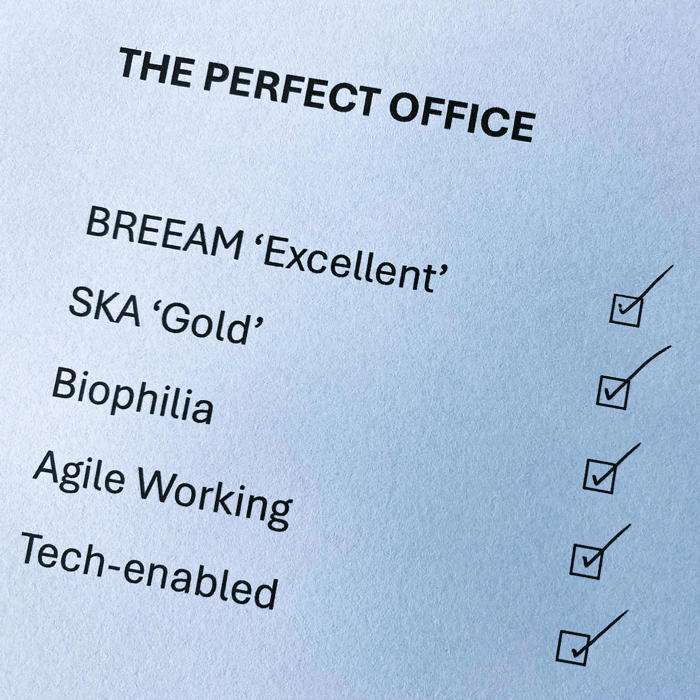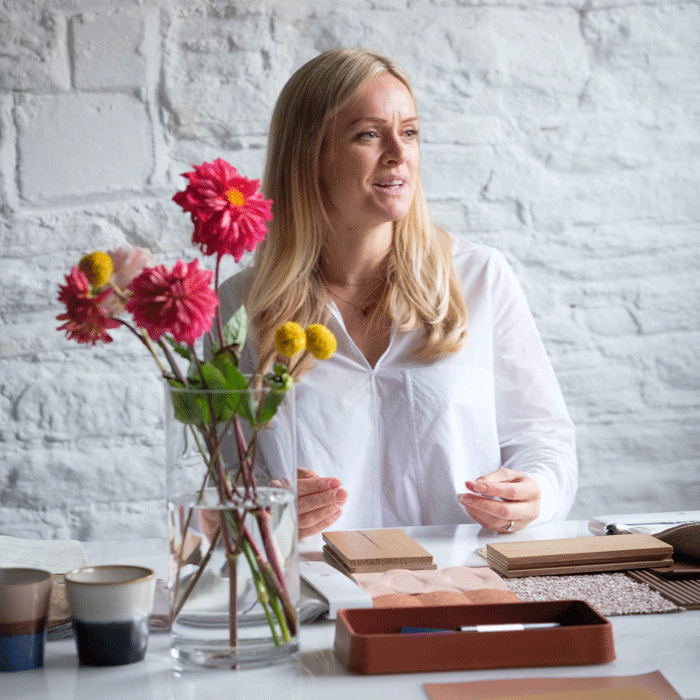Workplace Matters: Is Creativity Becoming Compromised?
Workplace Matters is an editorial series which explores thought-provoking and knowledge-based opinions on the workplace. This monthly series sparks meaningful conversations and shapes workplace design discourse.
Workplace Matters continues with a thought-provoking perspective from Sarah Dodsworth, Founding Partner, Ekho Studio, who shares her insights in her own words and questions whether creativity is being compromised!

Written by Sarah Dodsworth, Founding Partner, Ekho Studio
“During and immediately following the pandemic, the workplace became the most talked-about and creative field in design. The re-organisation of previously-uniform, open-plan spaces into task-appropriate neighbourhoods and zones; the arrival of agile working and biophilia and the possibilities afforded by new technologies had already dominated pre-pandemic conversation. Now, there was a heightened emphasis on wellbeing, adaptations for hybrid working and increasingly hospitality-focused design notes coming into play. Dominating everything was the drive to be more sustainable – and to attain industry-standard certifications and accreditations, especially for clients wanting to improve their corporate reporting.
In short, we needed workplaces to be more beneficial to the people who worked in them, as well as to the planet. It was all good news. Except that now, five years later, something unexpected has happened. The tick list of virtues each project has to embody has begun to lead to a new uniformity. By the time every accreditation and certification has been achieved, spaces are starting to feel more ‘engineered’ than designed. As a judge for BCO North, I have the privilege of visiting a lot of schemes, and both myself and other judges keep coming out saying, ‘That scheme really does tick every box, but where’s the love? What happened to office interiors that surprise you and SING?!’
Has meeting so many agendas at once created a culture of anxiety and fear about a scheme is not rather than what it is? Such a culture is the antithesis of the trust, partnership and belief that are necessary to generate the best schemes – designs with soul and sophistication; the creation of authentic, individual interiors that spark joy.
Good designers totally understand the need to be sustainable. We understand the need to include everyone too and to create spaces that are good for different types of activities, people – whether neuro-divergent or differing personality types – and missions. We also understand how to reflect and incorporate the values and narrative of any client business. We ‘get’ what’s needed to stand at the starting line. But what no one should ‘get’ is what a final scheme will look like from day one. Because what final schemes are looking like right now is a curious mixture of either identikit sameness or visual chaos, as if schemes are being decorated rather than designed, after the other boxes have been ticked. There is an alarming drop in visionary or truly confident new designs.
The aesthetic and emotional gifts design can bring are being undervalued by schemes that look good on paper – but only on paper. What is particularly concerning is that this undermining of creativity is coming from other directions too, including education and technology. According to government websites, the UK creative industries sector contributed £124.6 billion of Gross Value Added to the UK economy in 2022. And yet, there has been a steady, consistent decline in the arts and creative subjects in academic curricula.
In April 2024, Ministers announced funding cuts for performing and creative arts courses at English universities, kicking in this year. Gordon McKenzie, the chief executive of the GuildHE group of universities and colleges, commented: “These cuts show once again ministers’ disdain for creative education” adding that the DoE repeatedly makes policy and funding decisions “that damage the creative talent pipeline on which those industries depend.”
Coupled with the inevitable mechanised sameness which AI is going to bring, whose generative/regenerative processes produce solutions solely based on what has previously existed, it truly feels as if creativity is in danger from many angles right now – and that design’s ultimately transformative power is in danger of being undermined.”

Sarah Dodsworth, Founding Partner, Ekho Studio
Sarah Dodsworth is a Founding Partner of creative consultancy Ekho Studio, established in 2021 as a fresh force in design, looking to shape how people live, work and play for the better. The company and its work have been shortlisted for 18 creative awards to date, with 8 wins, including ‘Breakthrough Talent of the Year’ at the FX Awards in 2023. Sarah is a workspace specialist, a BCO North panellist and awards judge and also lectures and leads workshops in Interior Architecture at Leeds Beckett University. In 2024, she was named as one of Insider North West’s ’42 Under 42’, focusing on ‘the best of the region’s emerging talent.’ Her views on ways of working, wellbeing, lighting design and sustainability have been published widely.




